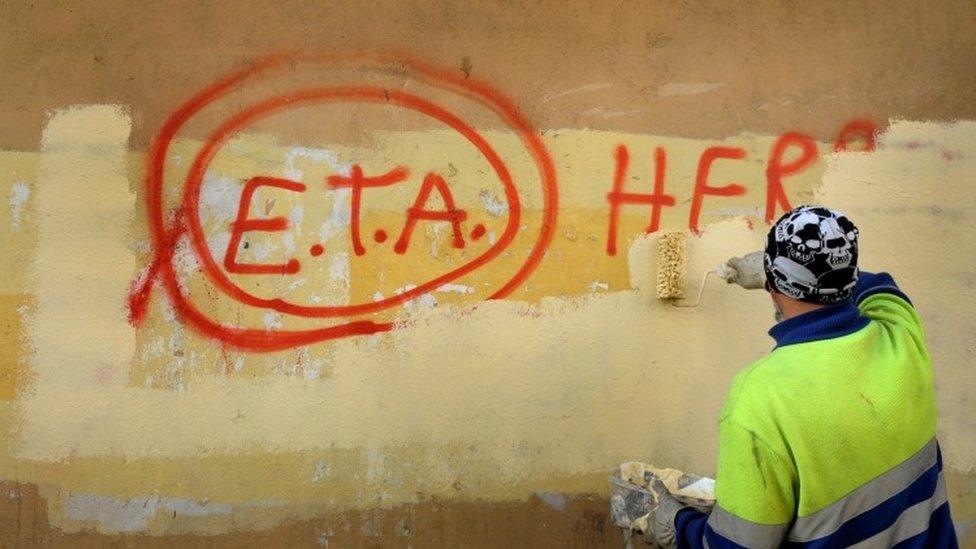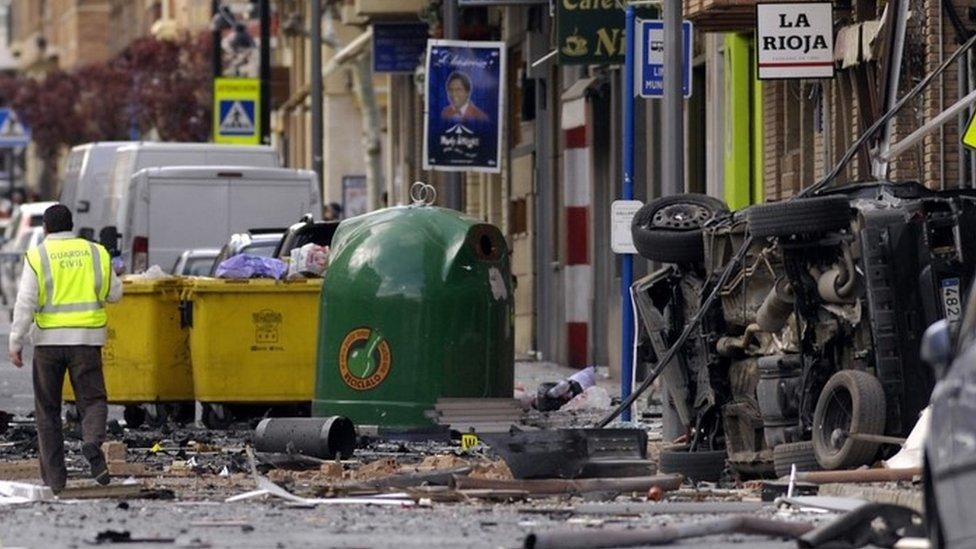Spain's Zapatero says Eta truce does not go far enough
- Published
Spain's Basque separatists Eta call 'permanent truce'
Spanish Prime Minister Jose Luis Rodriguez Zapatero has said the announcement by Basque separatist group Eta of a permanent ceasefire does not go far enough.
Mr Zapatero said that the "definitive end" of Eta was required.
Speaking on Spain's Antena 3 television, he said the government would not accept any conditions from Eta.
Its campaign for an independent Basque region has cost more than 800 lives.
Mr Zapatero said Eta must take "more forceful and definitive steps".
He added: "Those who see some element of hope in Eta's announcement need to know that the road ahead is still long, because the only thing that matters is the definitive end of the Eta terrorist group."
Mr Zapatero said there "will be no dialogue" with Eta. "We are not going to allow any trick," he added.
Mr Zapatero said any political party that had not rejected violence would not be able to take part in the local elections in May.
Eta has come under pressure from its political wing, Batasuna, which has been outlawed because of its connections to the group, but wants to stand in the elections.
Earlier, Spain's Interior Minister Alfredo Perez Rubalcaba said Eta remained "as arrogant as ever".
'Continuing struggle'
In a video statement sent to the media, Eta said it was declaring "a permanent and general ceasefire which will be verifiable by the international community". It said it was "time to act with historical responsibility".
"This is Eta's firm commitment towards a process to achieve a lasting resolution and towards an end to the armed confrontation," said the statement.
But the video, which showed three Eta militants in white hoods, made no mention of dissolving or disarming the organisation - a key demand of the government.
Eta said it would continue its "indefatigable struggle" for a "truly democratic situation in the Basque Country".
"From reading their statement, we can see that we are dealing with an Eta that has the same aims as always," Mr Rubalcaba said.
"It's an Eta that has a distorted view of reality, that has a list of demands that it's not abandoning. In summary: it's an Eta that displays the same arrogance as always, plus the usual discourse."
The BBC's Sarah Rainsford in Madrid says the strong language in the statement goes further than Eta has before, particularly the claim that the truce would be "verifiable", which could indicate a willingness to disarm.
Spain's socialist government has been wary of Eta's claims since the last truce it declared was broken by a bomb attack at Madrid's Barajas airport in December 2006, says our correspondent.
That attack resulted in peace talks being called off.
In September last year, Eta announced an end to its armed offensive but the government said the move was too weak for negotiations to restart.
The government argues that the militant group, whose campaign of violence began in 1968, has been seriously weakened by the arrest of most of its key leadership in recent years.
- Published8 April 2017

- Published16 May 2019

- Published25 June 2010
- Published30 December 2010
